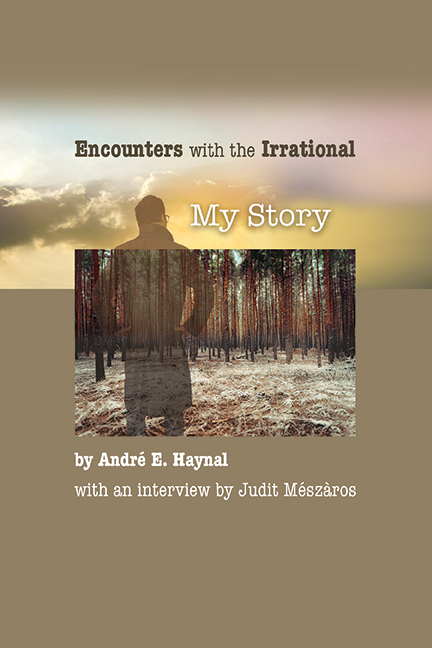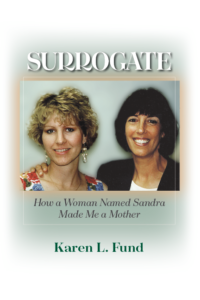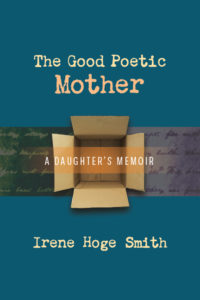Encounters with the Irrational by André Haynal
$24.95
Click Here to Read: Encounters with the Irrational. My Story by André Haynal Reviewed by Carlo Bonomi in International Forum of Psychoanalysis, 2018, Vol. 27, No. 3, 188–191.
This autobiography illustrates modern psychoanalysis’ view of the unconscious as a force determining various choices which turn out to be sometime not at all the ones we think to take for rational reasons. As an example, let’s think about what happened to me as a penniless refugee in Vienna (Austria) after a week drifting around:
“The key moments of the story, however, demonstrate all the way to the present day how tiny coincidences (the work of the Irrational!) may trigger important decisions. Walking along one of the avenues, I happened to run across one of my colleagues (a medical student from Budapest), who greeted me in a thoroughly smart outfit, coiffed hair and manicure, and a big smile. Her name was Etelka Ferenczi—a family name (no relation with the psychoanalyst Sandor who would play a major role in my life later on)— and she was in good spirits and well dressed. What was up with her? She invited me for a cup of coffee—she had money, but where from? —and told me that she was working for a refugee organization, that they had a list that might contain the names of 1000 candidates to be admitted to Switzerland, and that she might be able to get me on the list. Who knew I might be travelling to Switzerland shortly after that?”
I structured my text in three circles, the first being excerpts of an interview conducted by a colleague from Budapest (Hungary) that I call “Einfälle”, the second being a commentary, and in the third circle I develop more theoretical ideas drawn from my experience.
“As a matter of fact, I feel free to take my own approach presenting my life in concentric circles. The conversations with Judit and Ernst, the Einfälle, are encompassed by a second circle: a commentary, where my life’s narrative is more clearly organized. From there, a communication as the continuation of a meditation; here, a new character, the reader, also takes his place, as his presence and his silent attention is also discernible.”
It is a passionate endeavor to go “behind” one’s whole life, as the account shows, wondering about directions life has taken and their links to unconscious influences from outside and inside us. That is what I devoted my life to, researching through psychoanalysis the underlying motives of my own life’s encounters and events. Later, after my personal analysis, helping others to find their own understanding of themselves and of the directions they adopted for their life became my main professional activity.
I would like to insist on the importance of sincerity, helping to liberate fantasies. Thus we can slowly understand meditatively where to our fortuitous ideas, events and encounters can lead. In staying naked in front of the mirror, we make a step toward really seeing ourselves.
In the first chapters about my origins, I am showing how some attitudes – even legendary strong heads’ – influence our descendants’ approaches and outlooks for a long time.
“In Budapest, our Jewish uncle was hiding in our home, and thus we enabled him to survive. At the same time, my father saved a number of persecuted people in the cellar of his Kolozsvar (Cluj) clinic for which he received a posthumous Yad Vashem award.[1] Áron Márton, the catholic Bishop of Gyulafehérvár (Alba Iulia in present-day Romania), warned the nuns working as nurses at the clinic that revealing the secret would be a mortal sin in exposing these “patients” to death. And this had its effect. No outsider knew of the people in hiding, and they escaped death. There are hundreds of stories about my father’s courageous actions told by all kinds of people in Transylvania and Budapest. In Romanian-Transylvanian Kolozsvár, a street bears his name and memory still today.”
As my 8 years old son told me, “Papa, you have had a troubled life, you should write about it.”
“In return for cleaning horses, I was able to get a hold of horsemeat from the Soviet soldiers (they were Tatars, and they were a lot more civilized than the Russians were). They shared their porridge and gave me – “for the young man” – more than they had taken for themselves. Common work, common food: solidarity.
On other occasions, using a stolen knife, I helped myself, alone, in the middle of the street, from the meat of dead horses. Survival instinct is all I experienced: a deep force almost irresistible, no time to pause and think —Freud and his predecessors, foremost among them Darwin, were right. Irrational, isn’t it?”
Walking in the street, I carefully avoided treading on the cadavers that lay around as reminders of the most recent fights, but they didn’t avoid me. Intermediaries of the army called me up to bury them. It was not my first encounter with death, but nevertheless a good lesson “against omnipotence” as psychoanalytic moralists call it.”
“I was fifteen years old when I was dragged off to do forced labor, „malinky robot“ (“a little work!”). It was quite an acrobatic feat to push a wheelbarrow filled with heavy stones along a wooden board, without any handrails 10 meters above the river in full swing and then empty it into the water without being drowned along with the contents in the Danube brimming with ice blocks, before returning to make the trip again.”…
In the quest to understand my inner life, my evolution, my own experiences and overpassing the predetermination from childhood – a classical subject in psychoanalysis – I stumbled upon two themes, two knots which drew my special interest: 1) depression, its reasons, and its consecutive creativity as well as 2) the phenomenon of fanaticism, each of which became the matter of a book. The first is the most widespread psychic disturbance (according to WHO), the second is one of the greatest threat and destructive force of our social and political world in the 21st century as it was in the 20th.
“I’d left behind a very intense life in Budapest, which I had lived and loved between 1948 and 1956. I’m telling you about it because perhaps it’s these changes that prompted me to begin a psychoanalysis. I experienced a lot of anxiety, for example when I only had 30 Swiss francs left for the last week of the month and it wasn’t enough. I had far more anxiety over that than over crossing the border. I started getting seriously depressed in my abandonment, in my nostalgia, and in my homesickness. It was not a homesickness that would take me east but back in time. It didn’t mean that I wanted to go home to Budapest or to my parents. I missed the company and the friends – in fact, my past way of life that I was suddenly torn from. I started experiencing depression, which encouraged me to make the decision to begin an analysis, and soon that’s what I did”.
“Since any developmental process is, of necessity, accompanied by external change and the loss of successive inner states, is not despair a necessary concomitant of human development? Certain of its aspects are brought out through the mourning that takes places during psychoanalysis, when our erroneous representations of the world and of oneself are finally relinquished.”
“Where do the new elements of creativity come from? This is one of the central questions I am interested in. Creativity often follows a loss – this gives us a good hint! Depression is the mourning of this loss and after this first phase comes the “reparation”, as a second phase. This restitution of what was damaged is the source of the energy found in the act of creation.”
I don’t consider fanaticism as being present exclusively in others, but as a ubiquitous human temptation causing many disturbances, especially in our present time.
“let me remark that psychoanalysis has also, without a doubt, run the risk of becoming a utopian ideology, which as early as the 1960s was sometimes called “psychoanalism.” This ideology offered the unshakable conviction of not only being in the right, but also holding the Truth with no possibility of error. If somebody doesn’t accept psychoanalytic theses it is “purely because of affective resistances” (considered in this system as a “sin” would be in a religious context). The inherent complexities of the natural sciences, the limitations of the transformational power of psychoanalysis, did not stand in the way of these simplistic convictions.”
Since I have been writing this manuscript, this phenomenon returned from the traumatic shocks of my past and is spreading more and more into social and political life around us.
***
I would like to draw the reader into my meditation, and suggest him to learn about the consequences of unconscious influences in his own life. P. ex. for me, leaving Hungary was certainly an imperative in order to avoid being sent to a camp in Siberia. Emigration was not only a liberation from life-threatening persecution, but it also fulfilled a more unconscious desire (less easy to admit to myself) to leave behind me all these family conflicts, annoying and pesky authoritarian traditions as well as my moral and material dependence. To be far away!…
This text addresses an audience that doesn’t have the background of living in Europe at the time of 2nd World War and after. There is a cut off and probably an ignorance about the historical forces that shaped previous generations’ personal lives. I am writing these lines as a witness of the inner life of these persons.
To sum up: after German and Soviet occupation, the colorful life of a psychoanalyst is submitted for contemplation.
[1] Persons recognized as a “Righteous Among the Nations” are awarded a specially minted medal bearing their name, a certificate of honor, and the privilege of their names being added to the Wall of Honor in the Garden of the Righteous at Yad Vashem in Jerusalem.
In stock




